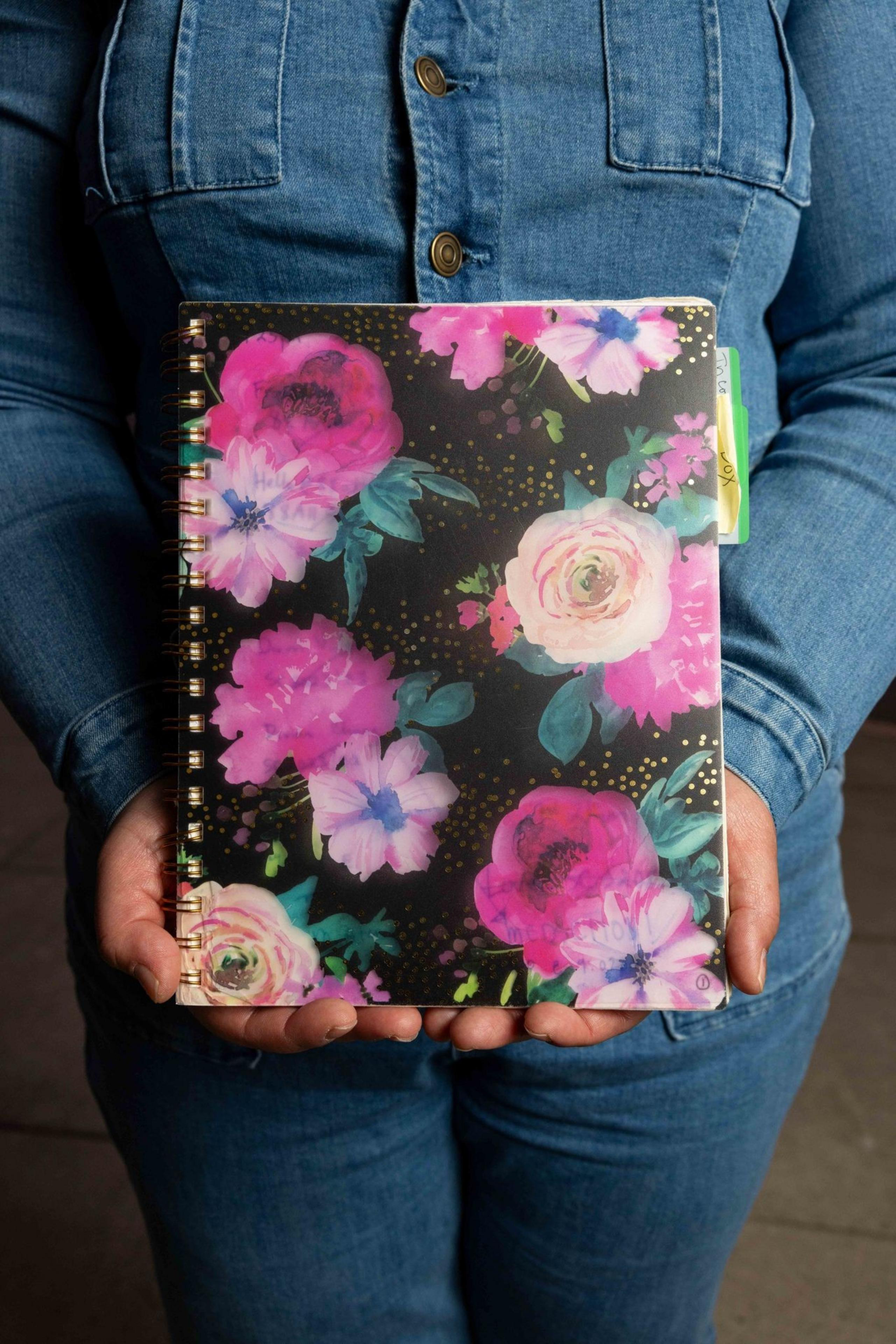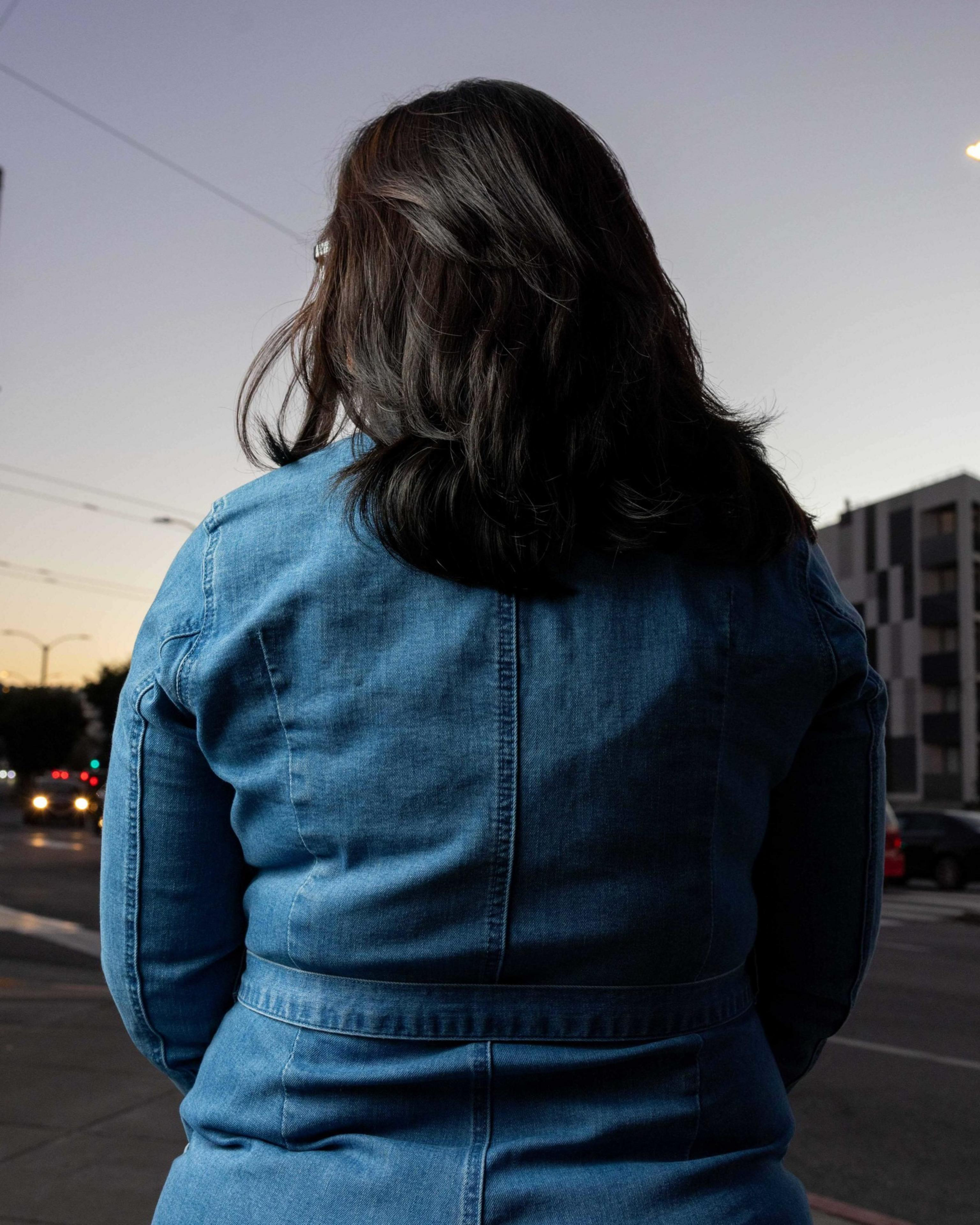It was March when Gwen decided she’d had enough.
Her husband had dragged her out of the elevator in their apartment building while their daughter watched. Gwen screamed, broke free, and ran to knock on a neighbor’s door. The police arrived soon after.
“That’s how it started,” said Gwen, whose name has been changed to protect her privacy. “I’m trying to figure out how I’m gonna do things. I’m communicating with my job, my [daughter’s] school.”
Her husband had been isolating her for years, she said. He had taken her money, her phone, her wedding ring, even her glasses. He had abused her physically, emotionally, and sexually. The Standard corroborated Gwen’s story through court documents.
“He said he didn’t care if he ended up in jail after killing me,” Gwen said.
After the elevator incident, Gwen fled to a friend’s house with her daughter. The police had given her a list of nonprofit service providers, but one after another said they didn’t have capacity to help her or had a long client waitlist.
One organization, Gwen recalled, said, “I’m sorry. We’re rooting for you.”
She contacted more than 20 groups over a period of six months before finding one that would take her case.
“I’m like, if I’m going through this, someone will just give up and stay in a fucked-up marriage,” Gwen said.
She chronicled her journey in a black, spiral-bound notebook decorated with pink roses and sparkling gold spots. By the time she found legal representation, she had filled every page.

Nonprofit pingpong
Nonprofits in San Francisco deliver services to thousands of people each year. More than 13,000 people accessed services through domestic violence programs in fiscal year 2022-23, according to a report from the Department on the Status of Women obtained by The Standard. The document reports that the district attorney’s office prosecuted nearly 500 domestic violence cases in 2023.
But what Gwen found is that in San Francisco, the myriad city agencies and nonprofits seeking to assist domestic violence survivors don’t always communicate with one another. When organizations were turning her away, or informing her of long waitlists, they would often refer her to groups she’d already visited. And she wasn’t the only one.
Alona said that when she called the numbers on the survivor resources flyer police gave her, four or five organizations didn’t answer the phone at all.
“I felt like I was in the tunnel, with no light at all,” said Alona, whose last name is being withheld to protect her privacy. “It’s so depressing. I didn’t know where to go. I felt lost.”
“I’ve had dozens of clients who have said how difficult it was to get help,” said family law attorney Stefanie Young, who works with the nonprofit Open Door Legal.
Young said one big problem is a lack of city funding, particularly for legal services. Open Door Legal’s executive director, Adrian Tirtanadi, described funding for these services as “grossly insufficient.”
“You may say, ‘Oh, it’s because of a lack of coordination,’ but it’s really a lack of funding,” Tirtanadi said.
‘Hidden crime’
Beverly Upton, who has led the San Francisco Domestic Violence Consortium since 2001, said she has seen the need for services steadily increase.
“The crisis lines and referral numbers are taking thousands of calls a year, and they have suffered some budget cuts,” she said.
The increase could be driven by a rise in violence, by more people reporting, or both. But Upton is sure the trend hasn’t made domestic violence more of a funding priority for the city.
“In San Francisco, I would say, competing priorities and the political will to support this vital work has been an issue,” she said. “Domestic violence is a quieter, more hidden crime and trauma that lives in the shadows. And when you have thousands of people living on the streets, of course that becomes a competing priority.”
Upton stressed that she did not want to see competition between nonprofits helping survivors of violence and those helping the unhoused. After all, the issues are related: Domestic violence is a leading cause of homelessness for women, and 52% of women living on San Francisco’s streets report having experienced it. But homelessness, as a public problem, is much more visible, so it often takes precedence during budget negotiations.
Even when the city allocates money to service providers for victims of domestic violence, Upton says, it doesn’t always show up.
Though the Board of Supervisors earmarked $1.25 million for its portfolio of gender-based violence organizations for fiscal year 2022-23, those organizations never saw the money, Upton said. That’s because even when the board allocates money for a certain purpose, mayoral departments can choose not to spend it — and they did. The $1.25 million was folded back into the general fund at the end of the fiscal year.
Mayor Daniel Lurie has yet to announce grant recipients for the coming fiscal year.
“The community is holding its breath, hoping that they will continue to be funded,” Upton said.
Lurie’s office did not answer specific questions, but provided the following statement:
“Mayor Lurie will always stand up for survivors of domestic violence. That’s why he specifically took time during his campaign to listen to survivors and understand how best to support them, and our administration will continue that work.”

A dream deferred
The city did have one plan to address the coordination problem, but it has become another delayed promise. The Mayor’s Office of Victim Rights is meant to guide victims and survivors through the process of finding legal representation and other services.
Voters approved MOVR’s creation by passing Proposition D in 2022. But two-and-a-half years later, the office still has no website, only recently got a phone number and office space, and has yet to announce its first hires.
The office so far consists only of director Ivy Lee, appointed last year by Mayor London Breed, deputy director Bobbi Lopez, and one employee who started in late December.
“It’s been frustrating for myself and also for community members that it’s taken so long,” Lopez said. “But it’s happening.”
Lopez cited budget challenges and a lengthy hiring process for the delays and emphasized that she is excited for the new office to get to work.
A source with firsthand knowledge of 2022 budget negotiations said MOVR was supposed to get funding in 2022, but a political dispute got in the way, and a year passed before the city allocated any money.
Yet another year went by before Breed appointed Lee in May, right before the director took a planned three-month leave to represent sexual assault survivors in local courts.
“The delays have been frustrating,” former Supervisor Catherine Stefani, who wrote Prop. D and now represents San Francisco in the state assembly, said in an email, “But they underscore the systemic issues we’re working to address.
“San Francisco’s existing services have been fragmented and overly reliant on the criminal justice system,” she added. “This left many victims — especially those who do not report their abuse to law enforcement — without access to critical resources.”
Prop. D was also supposed to create a right to legal counsel for victims of domestic violence. Even with Lee’s office launching, that remains a dream: MOVR aims to launch a right-to-counsel pilot in the future, if funding allows.
If you are looking for resources to escape domestic violence, help is available:
- Mayor’s Office of Victim Rights, 628-652-1175
- Asian Women’s Shelter 24/7 crisis line, 877-751-0880
- National Domestic Violence Hotline, text START to 88788 or call 800-799-7233
- WOMAN, Inc. 24/7 Support Line, 877-384-3578
- Cooperative Restraining Order Clinic, 415-969-6711
- La Casa De Las Madres Crisis, call 877-503-1850 or text 415-200-3575
- A Women’s Place, 415-487-2140
- Mission Neighborhood Resource Center, 415-869-7977
- Black Women Revolt Against Domestic Violence, 888-260-1498
